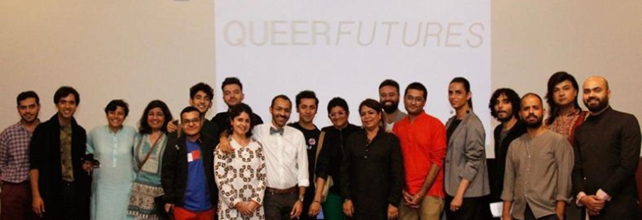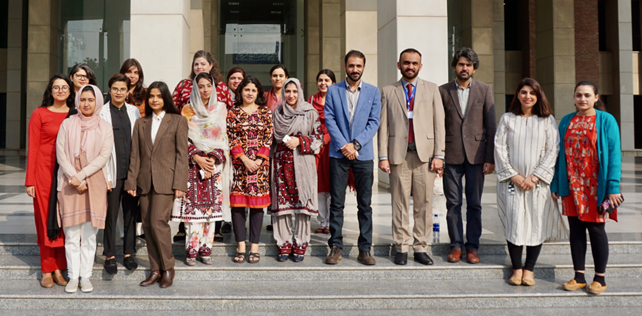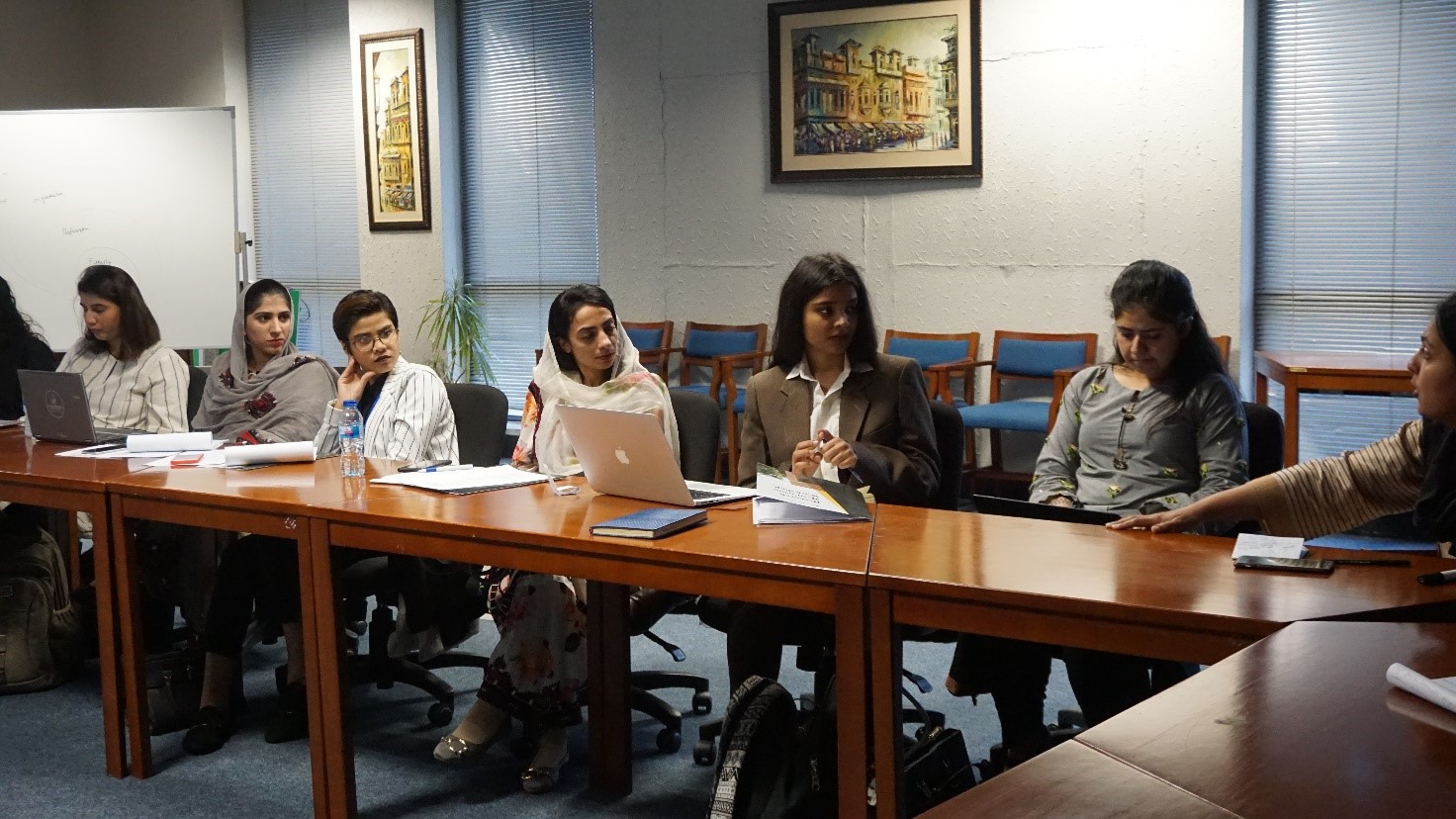Workshops
by Saida Waheed Gender Initiative (SWGI) in collaboration with Omar Kasmani
14-16 March 2019 | LUMS, Lahore
Speakers: Omar Kasmani, Sarah Shroff, Anjali Arondekar, Fazal Rizvi, Madiha Aijaz, Momina Masood, Sanam Maher, Asad Alvi, Gwen Kirk, Sadia Shirazi, Naveen Minai, Mehlab Jameel, Raza Haider, Nighat S. Khan, Sarah Suhail, Priya Sen, Muhammad Moiz and Sameena Nazir

What does it mean to be queer in Pakistan? What possibilities and spaces exist for non-normative expression? Must a history of queer existence be traced or is queer presence in the now testament enough? What discontents, if any, surround the term queer in Pakistan and is there a need to develop locally-conversant vocabularies of queerness? How important is the role of language and location in speaking to queer discourse elsewhere? How must we imagine our place in time or what shapes can queer futures take in Pakistan?
These were some among many questions brought up at Queer Futures, a three-day workshop, which centered around themes of aesthetics, politics and sexualities. It was jointly organised by Dr. Nida Kirmani, Associate Professor of Sociology at LUMS, and Dr. Omar Kasmani, Postdoctoral Research Fellow in Social and Cultural Anthropology at Freie Universität, Berlin as part of the Saida Waheed Gender Initiative at LUMS from 14-16 March 2019. More than 25 participants presented their work including academics, activists, artists, writers and students.
To ensure a diversity of perspectives, the workshop drew upon a number of formats including academic talks, artist dialogues, literary readings, a round table discussion and a film screening. The aim was to create a space for cross-cutting conversations while efforts were also made to ensure a queer-affirmative environment for learning, sharing and critical inquiry.
The workshop commenced with an opening keynote by Dr. Anjali Arondekar, Associate Professor of Feminist Studies at UC Santa Cruz. Fitting to the theme of futures, she pointed how history, though considered an unparalleled treasure of narratives, should also be divulged into critically.
Download Full Report


The Saida Waheed Gender Initiative (SWGI) promotes interdisciplinary inquiry that is attentive to the construction and operation of gender across different contexts. By engaging LUMS and educational spaces across Pakistan in ongoing local and transnational conversations, SWGI seeks to critically contribute to research and praxis that deepens understandings of gender as sets of relations and processes within and beyond Pakistan. With this goal in mind, SWGI organised a Research Mentoring Workshop in 2019 which invited students from public and private universities across Pakistan to engage in sharpening their research skills.

This workshop was aimed to help develop and support original research ideas related to gender and/or sexuality, which engaged primary and secondary sources. It was open to a range of topics including but not limited to gender and religion, the media, literature, politics, social movements, feminist theory, masculinities and femininities, health and the body, sexuality, gender-based violence, history, and development.
This workshop helped young researchers explore key questions about:
- How can we actually "do gender" in practical terms?
- What are useful methods and techniques for researching and writing from a gender perspective?
- How can gender studies complement but also challenge other disciplines?
- And conversely, what critiques and new ideas can other disciplines bring to gender studies?

Along with providing basic training in feminist research methodologies, the Research Mentoring Workshop offered an excellent opportunity for student participants to present their research proposals and receive valuable feedback from the academic community at LUMS - experienced researchers were specifically assigned according to the topics, who guided students through the research process, and prepared in-depth comments and questions related to their proposals. The workshop's goal was to aid students at multiple stages of their education: from those in the final stages of undergraduate training to those active with graduate thesis research.

